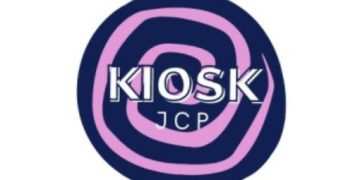Training on soft skills is important in many fields, from sales to customer service. It can be very beneficial for businesses, from startups to big corporations, to improve their sales staffs’ performance and overall work ethic. Whether it’s about interacting with customers, or a team of employees working in the same environment, training on soft skills can help make you a better salesperson, and even a better boss. Luckily, it doesn’t have to be expensive.
Learning management system (LMS)
A Learning Management System (LMS) can be a helpful tool for any business. It helps companies provide a consistent learning experience for their employees. Moreover, it offers many other benefits.
One of the most popular uses for an LMS is employee training. This is a great way to motivate your employees to finish a course or learn a new skill. Using a learning management system can also cut costs.
In addition to providing access to online courses, an LMS can improve employee retention by delivering a more personalized experience. Artificial intelligence can be used to customize the learning experience for each individual. Besides, gamification features such as games and awards can keep learners engaged.
Companies can also use an LMS to create a starter pack for new employees. It includes an introductory presentation and a virtual tour of the company.
Choosing the right learning management system can reduce costs, improve productivity and employee retention. It can be used by businesses of all sizes, from educational institutions to government agencies.
Target audience
Soft skills training is gaining increasing popularity among businesses. This is because it helps improve productivity and overall efficiency. It also has a positive impact on customer service.
Soft skills are the foundation for business operations. For instance, teamwork is a desired skill for many companies. Developing these skills will improve communication, resulting in stronger team dynamics.
Training can also help employees recognize problems and offer solutions. Employees can be trained to use precise language, think critically, and recognize obstacles. Developing these skills helps them understand their job, solve issues, and make informed decisions.
Defining the soft skills needed in your organization will ensure that you are providing the right training for your employees. Whether your employees are brand new to the workforce or have been with you for a while, you can tailor the soft skills training program to meet your goals.
You can choose a learning management system (LMS) or other form of online platform to deliver soft skills training. Online platforms provide the flexibility of eLearning formats and make it easy to track results.
Personalized training
Personalized training on soft skills helps improve employee performance and engagement. It is also a great way to boost productivity. Investing in employee growth reduces the cost of replacing staff and provides employees with a sense of ownership.
The most effective method to learn a complex skill is to break it down into small, manageable pieces. Online interactive learning is a proven way to achieve this. Personalized learning also allows employees to take courses in a manner that best suits their needs.
In the current global climate, online learning is the right choice. Employees can learn on the go and practice in real life situations.
An online library of training content can help your business achieve success. Whether you are training sales teams or new hires, the best courses incorporate a mix of modern technology and engaging content.
Soft skills are an integral part of customer service. By enhancing these skills, you can improve your customer experience and gain more clients. Investing in employee development not only increases the value of your workforce, but can also reduce stress.
Timely feedback
There is a real need for timely feedback on soft skills training This can help employees work together to develop solutions.
When giving feedback, it is important to remember that it isn’t just something to do when someone is upset or disappointed. It can be a positive part of the learning process. But it can also be a difficult task. Many employees aren’t particularly good at giving feedback.
To be effective, feedback should be specific and meaningful. This will increase employee morale, boost productivity and help employees think outside the box. In addition, it will give the team a stronger sense of teamwork.
Providing high-quality feedback is an ongoing process. That’s why educators should work to ensure that they are giving feedback at a timely time.
Often, this can be challenging, especially in an office environment. However, online tools such as Rise can make it easier to provide timely feedback.




















































